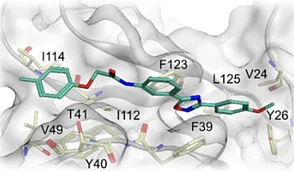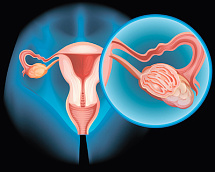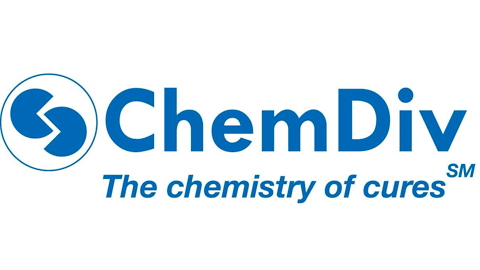Central nervous system drugs

Due to the nature of the CNS and the blood-brain barrier (BBB), many properties (both chemical and physical) of compounds aimed at CNS targets differ from those of so-called drug-like molecules. These distinctions reflect the fact that significant brain exposure to a drug is required to engage any CNS target.
Nowadays, the rational design of such compounds is heavily reliant on numerous mathematical algorithms based on the analysis of descriptors of known CNS drugs. Some of these descriptors are simple to compute using merely a compound's structure: molecular weight, number of hydrogen bond donors, and acceptors. The other may be difficult to obtain, so specialized algorithms are used to estimate them: cLogP and cLogD are two well-known examples.
Predicting CNS-permeability is an important aspect of an efficient drug discovery program; fortunately, a variety of approaches to this task have been published in recent years. MPO [1] and BBB-score [2], the two methods addressed in these papers, are of particular interest due to their computational simplicity and reasonable accuracy.
• The “BBB Score” is a weighted function of several stepwise and polynomial functions of molecular descriptors such as number of aromatic rings, number of heavy atoms, topological surfaces area, and pKa. In addition to "prime", the following composite descriptor is used: MWHBN (comprising molecular weight, hydrogen bond donor, and hydrogen bond acceptors).
• MPO (multiparameter optimization) scoring functions take a more straightforward approach, applying statically determined boundaries to the main molecular descriptors.
Combining many properties into a single value helps to avoid hard cut-offs and enhances compound quality overall. ChemDiv is pleased to offer its own custom libraries of BBB permeable compounds selected by using the above-mentioned methods:
• CNS MPO Library (https://www.chemdiv.com/catalog/focused-and-targeted-libraries/cns-mpo-library/)
• CNS BBB Library (https://www.chemdiv.com/catalog/focused-and-targeted-libraries/cns-bbb-library/)
1. Gunaydin H. Probabilistic Approach to Generating MPOs and Its Application as a Scoring Function for CNS Drugs. ACS Med Chem Lett. 2015 Dec 2;7(1):89-93. doi: 10.1021/acsmedchemlett.5b00390.
2. Gupta M, Lee HJ, Barden CJ, Weaver DF. The Blood-Brain Barrier (BBB) Score. J Med Chem. 2019 Nov 14;62(21):9824-9836. doi: 10.1021/acs.jmedchem.9b01220.
Nowadays, the rational design of such compounds is heavily reliant on numerous mathematical algorithms based on the analysis of descriptors of known CNS drugs. Some of these descriptors are simple to compute using merely a compound's structure: molecular weight, number of hydrogen bond donors, and acceptors. The other may be difficult to obtain, so specialized algorithms are used to estimate them: cLogP and cLogD are two well-known examples.
Predicting CNS-permeability is an important aspect of an efficient drug discovery program; fortunately, a variety of approaches to this task have been published in recent years. MPO [1] and BBB-score [2], the two methods addressed in these papers, are of particular interest due to their computational simplicity and reasonable accuracy.
• The “BBB Score” is a weighted function of several stepwise and polynomial functions of molecular descriptors such as number of aromatic rings, number of heavy atoms, topological surfaces area, and pKa. In addition to "prime", the following composite descriptor is used: MWHBN (comprising molecular weight, hydrogen bond donor, and hydrogen bond acceptors).
• MPO (multiparameter optimization) scoring functions take a more straightforward approach, applying statically determined boundaries to the main molecular descriptors.
Combining many properties into a single value helps to avoid hard cut-offs and enhances compound quality overall. ChemDiv is pleased to offer its own custom libraries of BBB permeable compounds selected by using the above-mentioned methods:
• CNS MPO Library (https://www.chemdiv.com/catalog/focused-and-targeted-libraries/cns-mpo-library/)
• CNS BBB Library (https://www.chemdiv.com/catalog/focused-and-targeted-libraries/cns-bbb-library/)
1. Gunaydin H. Probabilistic Approach to Generating MPOs and Its Application as a Scoring Function for CNS Drugs. ACS Med Chem Lett. 2015 Dec 2;7(1):89-93. doi: 10.1021/acsmedchemlett.5b00390.
2. Gupta M, Lee HJ, Barden CJ, Weaver DF. The Blood-Brain Barrier (BBB) Score. J Med Chem. 2019 Nov 14;62(21):9824-9836. doi: 10.1021/acs.jmedchem.9b01220.


